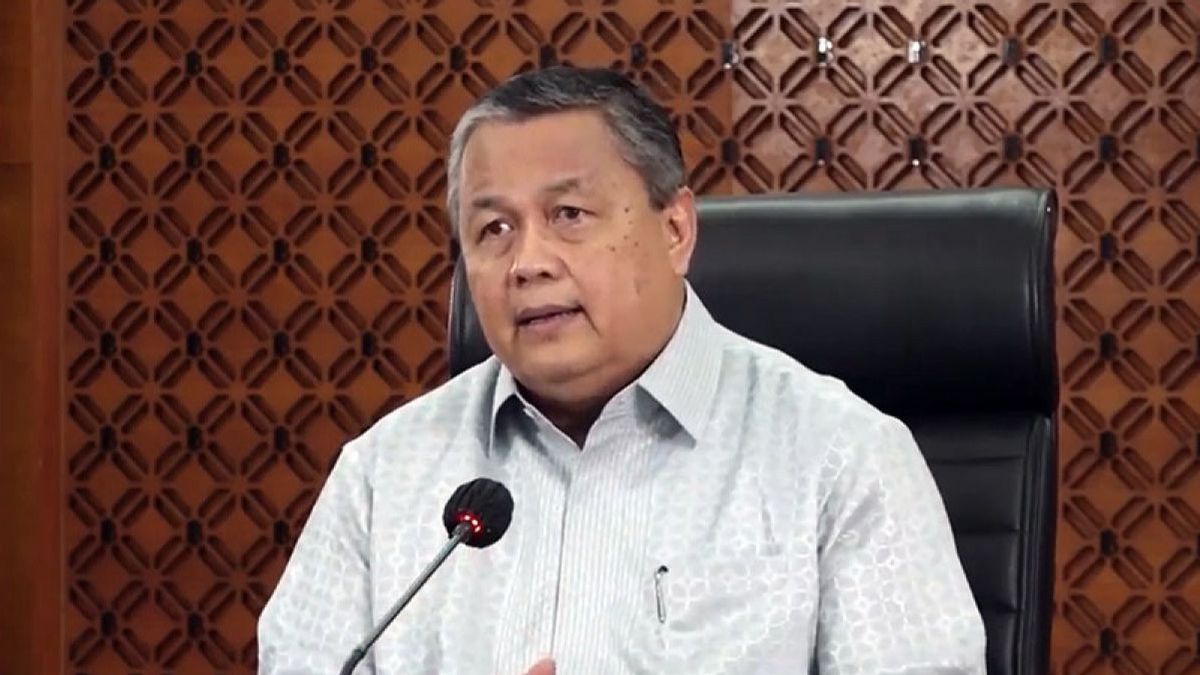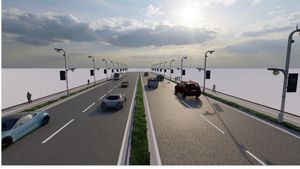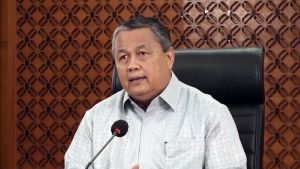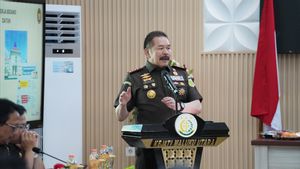JAKARTA - Bank Indonesia (BI) predicts Indonesia's economic growth in 2025 will be slightly below the midpoint from 4.7 percent to 5.5 percent.
Bank Indonesia Governor Perry Warjiyo said this was influenced by the direct impact of the United States (US) tariff policy which reduced Indonesia's exports to the US and the indirect impact of lowering export demand from other Indonesian trading partners, especially China.
"In this regard, various policies need to be strengthened in order to mitigate the impact of the decline in the world's economic growth prospects, by encouraging domestic demand and taking advantage of opportunities to increase exports," he said in his statement, Wednesday, April 23.
Perry said that Bank Indonesia continues to strengthen the mix of monetary and macroprudential policies to maintain stability and contribute to economic growth, supported by accelerating the digitization of payment systems.
According to him, Bank Indonesia continues to strengthen synergies with the policy of fiscal stimulus of the Central and Regional Governments, including full support for the implementation of various Government programs in Asta Cita.
In addition, he said that Indonesia's economic growth until the first quarter of 2025 was still maintained amid increasing global uncertainty.
Perry said that household consumption grew positively supported by the confidence of economic actors and income conditions which were generally still stable.
"Government spending related to the provision of holiday allowances (THR), social spending, and various other incentives, as well as increased seasonal demand during the celebration of Eid al-Fitr 1446 H also supports household consumption," he explained.
Perry added that investment, especially non-development, continues to support economic growth as reflected in the increasing imports of capital goods, especially heavy equipment.
另请阅读:
Meanwhile, non-oil and gas exports in the first quarter of 2025 increased, mainly supported by manufacturing commodities, such as machinery and iron and steel, to ASEAN countries.
"Spatially, economic growth in various regions is indicated to remain good, especially in the Kalimantan and Java regions," he said.
In the future, Perry conveyed the US reciprocal tariff policy and the retaliation steps taken by China and the possibility that other countries could affect the prospects for Indonesia's economic growth.
The English, Chinese, Japanese, Arabic, and French versions are automatically generated by the AI. So there may still be inaccuracies in translating, please always see Indonesian as our main language. (system supported by DigitalSiber.id)
















